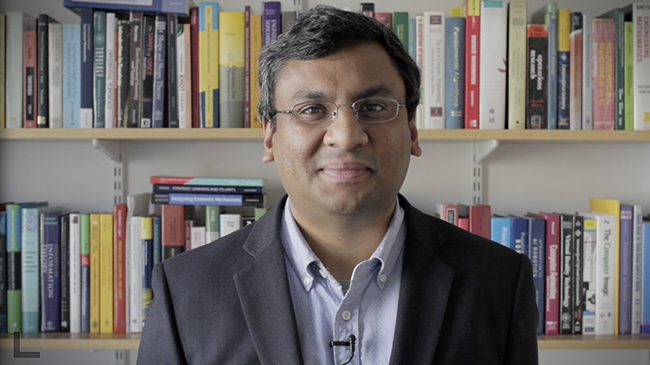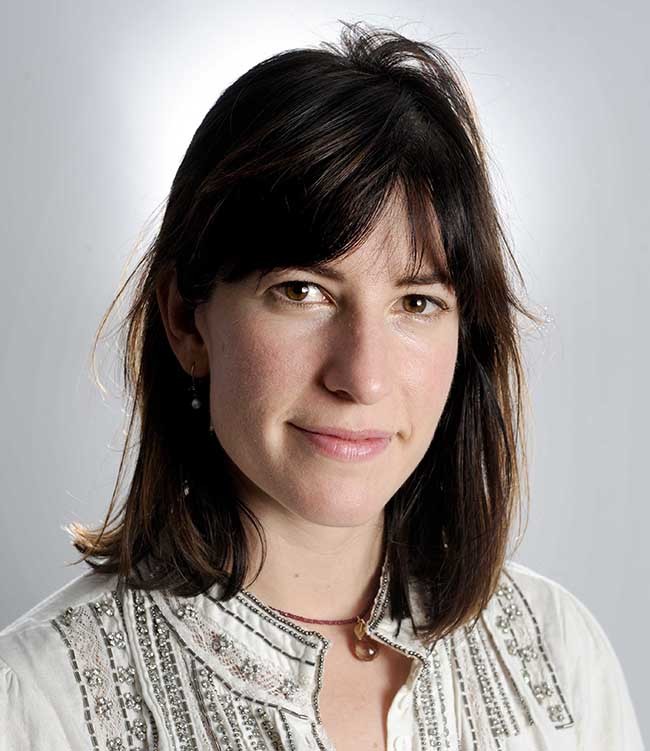Man-made monsters and utopian visions of the future enhanced by thinking machines are coming together in the week ahead.
The Big Bang arts, literature and science festival in Wigtown, Scotland’s National Book Town, runs from 2-4 February and promises inspiring talks by leading scientists and authors, plus comedy, music, film, cabaret, food and drink.
Among the speakers is Professor Sharon Ruston who has a long-held fascination with Mary Shelley’s tale of Frankenstein’s monster which, 200 years ago in 1818, first horrified readers with the notion that the line between life and death was not absolute and that the dead could be resurrected.
Then there is Dr Subramanian Ramamoorthy, who works with humanoid robots at the University of Edinburgh and is also a vice president of FiveAI, where he is a key figure in developing thinking computers to control self-driving cars and other vehicles.

Dr Subramanian Ramamoorthy
The first demonstration will take place on the streets by 2019 with hopes high that within a few years we will start to see automated and integrated transport systems that allow swift, safe and less polluting travel through major cities.
Dr Ramamoorthy believes that the future of machine intelligence is as much about trust as technology.
He said: ‘In the surgical theatre there are operations that can take 15 hours and are exhausting for humans – having robots to do some of the work would allow the human surgeons to concentrate on the parts they are really needed for. For that to happen the surgeon needs to absolutely trust the machine, to understand the intention behind any action and for these to be predictable.
‘Autonomous vehicles will have to be far safer than humans in order to win our trust. And you’d want autonomous vehicles to be safer than some of the drivers we allow on the roads.’
Suspicions, especially in the West, are likely to get even greater if we move from machines that can learn and make decisions, to ones that seem to be alive.
Dr Ramamoorthy said: ‘There is a lot of fear of the unknown. Western literature and culture often make negative assumptions, assuming it will be bad. In Japan though, perhaps due to the influence of anime, attitudes are more fluid and accepting that it could be very positive.’
Big Bang is all about the mechanics of life – and asking the question is it alive?

Professor Sharon Ruston
Professor Ruston sees Frankenstein; or, the Modern Prometheus as ground breaking because it created a powerful new myth, suggesting that science could remove the boundaries between the living and the dead.
And that’s how it seemed at the time. In 1803 the Italian physicist Giovanni Aldini went to Newgate prison and used electricity to stimulate the corpse of executed criminal George Forster – whose eye reportedly opened, right arm lifted and legs moved.
Two centuries later there is a similar feeling of being on a threshold; we clone large animals, carry out genetic modification and are making huge advances in AI and robotics.
Professor Ruston said: ‘Mary Shelley’s ideas resonate just as much today as then because we can invest them with our own anxieties and fears.’
Just as compelling is the ‘moral absence’ at the centre of the book and Mary Shelley’s refusal to condemn the making of the creature, preferring to ask different questions.
Was the monster doomed because Victor Frankenstein used the brain of a murderer, or was he pushed to evil acts by the way he was treated?
Professor Ruston said: ‘Nature or nurture, the debate is still going on today. Was Victor Frankenstein responsible for what happened because he abandoned the creature, and what the other characters who treated him so badly?
‘It’s the same in the modern world when we look at things like terrorism. Is it inevitable that such groups emerge, or is it the way people have been treated by society and the experiences they have had that encourages them to commit acts of atrocity?’
Other talks will look at other extremes including microscopic life and extraterrestrials.

Jessica Fox
Jessica Fox, festival director, said: ‘We really are delving into our deepest fears and greatest hopes. Victor Frankenstein used his surgical skills to create a monster, where modern scientists are working on robot surgeons to save human lives.
‘We have a deep cultural fear of what will happen if we cross certain boundaries, but we are also fascinated by the enormous possibilities for good that might be available if we can adapt or repair existing life forms, or if we can discover or create new ones.
‘Big Bang looks at all of this and more. It aims to be inspiring and engaging – and with a lot of fun too including comedy, music, film and children’s activities. We really look forward to welcoming visitors to Wigtown for a great weekend.’
For more details click HERE.
TAGS

